Thursday, June 20, 2024
Registration/Exhibits/ Breakfast
9:00-9:30 a.m.
Welcome
9:30-9:45 a.m.
VDOE Updates
Wanda Council
9:45-10:15 a.m.
Keynote Presentation
10:20 - 11:50 a.m.
Presentation Description
Learning to read is an essential life skill in our society. In recent years, there has been an increased focus on literacy and reading development. There is a need to explore how approved curriculums can be used with Deaf and hard-of-hearing children and the role that all professionals have in developing these skills. This presentation will cover an overview of reading principles and theories, how to work approved reading curriculums into intervention, and ways to encourage family support.
Session Objectives:
- Explain how professionals supporting children who are Deaf and hard of hearing can incorporate literacy
- Review the simple view of reading and the reading rope and the correlation to children who are Deaf and hard of hearing
- Demonstrate how all professionals can work literacy skills into sessions
Presenter Biography
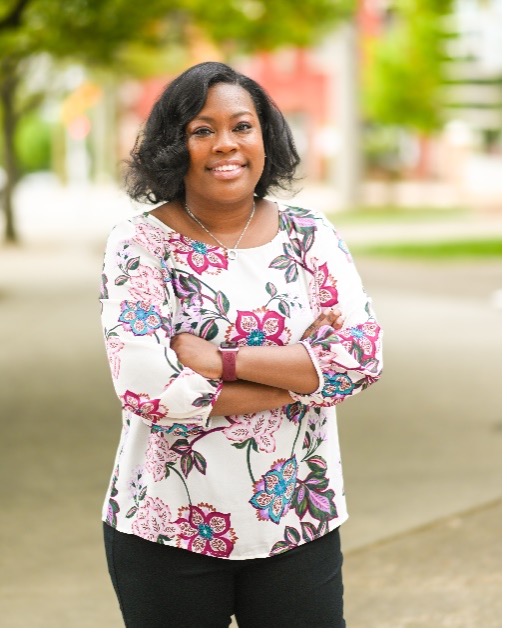
Sydney Bassard
The Listening SLP
Sydney Bassard, MSP, CCC-SLP, is a speech-language pathologist who specializes in working with individuals who are Deaf and hard of hearing and literacy. She owns The Listening SLP, which is her private practice and social media brand. Sydney was noted as an American Speech-Language-Hearing Association Innovator in 2023 for her work centered on the equity of health information. Through her social media page, she engages with professionals and parents on the topics of hearing loss and literacy.
Sydney is actively involved with research related to both clinical areas of interest. She has assisted with data collection for the ongoing ELLA Study that investigates language and literacy outcomes for children who are Deaf and hard of hearing. Sydney is a co-PI on a research study investigating writing outcomes for children who are Deaf and hard of hearing through a cultural and linguistic diversity lens.
Concurrent Sessions #1
1:10 - 2:25 p.m.
Presentation Description
ABCs and I23s are at the top of many families' lists of concepts to learn. While these tend to be rote memorization concepts, professionals can focus on early literacy from the start of therapy. Emergent literacy skills (oral language, print knowledge, and phonological processing) help set the foundation for later reading skills. In this presentation, we will cover how those working in Deaf education can use emergent literacy in therapy and encourage use at home and in the classroom.
Session Objectives:
- Define emergent literacy and the three skills that compose this period
- Explain how to incorporate emergent literacy skills into sessions
- Demonstrate the use of emergent literacy tasks in sessions
Presenter Biography

Sydney Bassard
The Listening SLP
Sydney Bassard, MSP, CCC-SLP, is a speech-language pathologist who specializes in working with individuals who are Deaf and hard of hearing and literacy. She owns The Listening SLP, which is her private practice and social media brand. Sydney was noted as an American Speech-Language-Hearing Association Innovator in 2023 for her work centered on the equity of health information. Through her social media page, she engages with professionals and parents on the topics of hearing loss and literacy.
Sydney is actively involved with research related to both clinical areas of interest. She has assisted with data collection for the ongoing ELLA Study that investigates language and literacy outcomes for children who are Deaf and hard of hearing. Sydney is a co-PI on a research study investigating writing outcomes for children who are Deaf and hard of hearing through a cultural and linguistic diversity lens.
Presentation Description
Deaf and hard-of-hearing children who use American Sign Language (ASL) to communicate but do not have fluent signing parents face significant behavioral, academic, and social delays due to language deprivation (no mastery of a native language or L1). The detrimental effects of language deprivation in d/Deaf and hard of hearing children are well documented and can be life-long. Lynchburg City Schools was awarded a grant in 2023-24 to implement a Language Parent program as an intervention for deaf and hard of hearing students who demonstrate the effects of language deprivation in grades pre-K through 8th. Deaf adults were recruited and trained as Language Parents (DLPs) to provide natural language acquisition-rich interactions with these children during their regular school day. The program design was based on the work of linguist Leanne Hinton, who helped pioneer the mentorship approach to preserving the heritage languages of indigenous people groups.
Language assessments were performed at the beginning and end of the grant cycle to provide measurements of ASL growth. To foster increased communication and connection within the family, the grant paid for parents to attend ASL classes taught and held three DLP and family social activities after school hours with structured, language-rich activities. The results of this grant program, both successes and challenges, will be shared, along with the personal experiences of one of the DLPs
Participant Outcomes and Objectives:
- Identify impacts (communication, social, behavioral, and academic) of language deprivation on d/Deaf and hard of hearing children within the academic setting the conclusion of this session, participants will be able to take a variety of language samples across categories.
- Describe the activities of a Deaf Language Parent (DLP) in modeling and mentoring ASL with language-deprived d/Deaf and hard-of-hearing children in the pre-K - 8th grade classroom
- list strategies for promoting increased communication and connection through a partnership between parents of children who are d/Deaf or hard of hearing, ASL instructors, and DLPs
Presenter Biographies
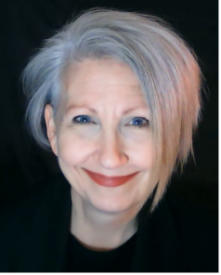
Katherine McMullen
Lead Educational Interpreter
Lynchburg City Schools
Katherine McMullen, MA, NIC, a veteran interpreter from Lynchburg, VA, has spent the past 34 years working in various roles within the field of deafness as a counselor, mentor, consultant, teacher, and interpreter. For the past 25 years, she has been the Lead Educational Interpreter for Lynchburg City Schools, creating opportunities for children who are deaf or hard of hearing to succeed inside and outside of the mainstream classroom by fostering exceptional, highly skilled interpreting teams and promoting partnership with the local Deaf Community. Under her leadership, Lynchburg City Schools has seen a 100% graduation rate (standard and advanced diplomas) for its Deaf and hard-of-hearing student population since 1999. Her passions include educational, behavioral health, and theatrical interpreting, and she specializes in fully ‘shadow-interpreted’ productions (a fully immersive, on-stage interpreting approach she helped bring to Central Virginia in 2012.) She loves mentoring and teaching workshops BUT if she’s not working, she’s probably off baking, playing with her grandkids, traveling, at an outdoor concert, or watching a theatrical production with her besties!
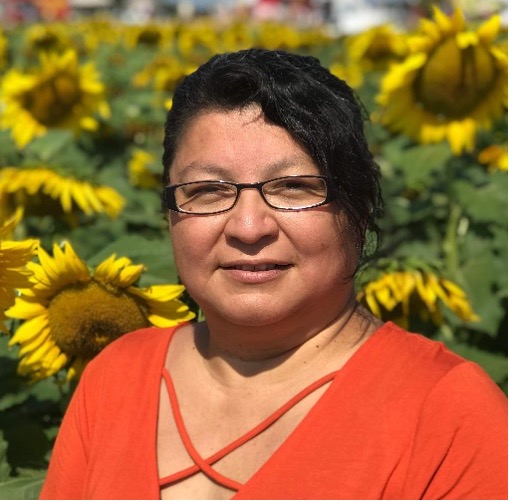
Laura Atwell
Lynchburg City Schools
Laura Atwell is a native of Texas with education and experience in early intervention and learning for Deaf and hard-of-hearing children. Laura is Deaf and mom to a Deaf daughter as well. She provided the most hours of DLP services during our grant program and has a wealth of experience to share
Presentation Description
Families of students with disabilities often have a vast number of questions about special education, and these questions often multiply when secondary transition planning begins. This session will provide attendees with information about the importance of being engaged in their child's education, support provided by the Virginia Department of Education's Office of Facilities and Family and Engagement, as well as the Critical Decision Points to keep in mind during secondary transition planning.
Participant Outcomes and Objectives:
- Explain the importance of engagement in their child's education.
- Support their child through the secondary transition planning process by understanding Critical Decision Points in their child's education and questions to consider.
- Contact and communicate as needed with the Virginia Department of Education's Family Engagement Team for special education support.
Presenter Biographies
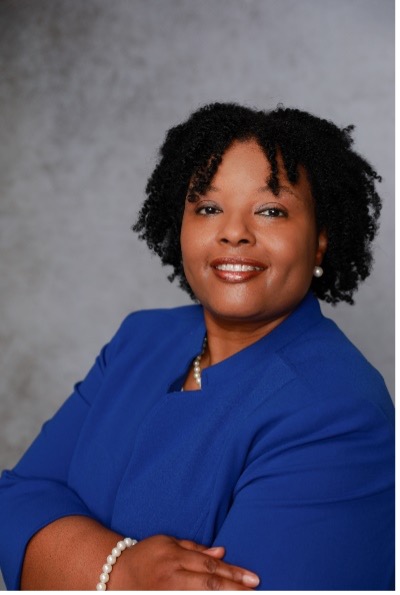
Dr. Chiquita Seabourne
Family Engagement Specialist/Special Events Coordinator
Virginia Department of Education
Dr. Chiquita Seaborne serves as the Family Engagement Specialist/Special Projects Coordinator in the Office of Special Education Family Support and Special Facilities at the Virginia Department of Education (VDOE). She supports family engagement initiatives across the Commonwealth and implements evidence-based family engagement practices. Dr. Seaborne is a graduate of Hampton University in Hampton, Virginia where her research focused on family engagement. Her experience in education spans two decades and provides the foundation for her work with families, students, administrators, teachers, and community partners. She has served as a special education teacher/case manager, secondary transition coach, adult education teacher, coordinator of secondary instruction, and coordinator of secondary transition. Dr. Seaborne’s passion for engaging families and students with disabilities led her to collaborate with VDOE and ODU TTAC to host a school division’s first Youth and Family Summit. She currently serves as the Membership Co-Chair for the Division on Career Development and Transition (DCDT).
Peter Grabowski
Special Education Parent Ombudsman
Virginia Department of Education
Peter Grabowski is the Special Education Ombudsman in the Department of Special Education and Student Services at the Virginia Department of Education (VDOE). He serves as a designated neutral party who advocates for a fair process and provides confidential, informal assistance and support to parents, guardians, advocates, educators, and students with disabilities.
Over the past 19 years, Mr. Grabowski has dedicated his professional career to serving children and their families. His previous roles include outdoor therapeutic residential counselor, residential program supervisor, special education teacher/IEP case manager, special education department lead, division instructional specialist, and division coordinator of special education. Mr. Grabowski’s passion for supporting the constituents of the Commonwealth is evident in his daily interactions throughout his mission to assist families in a manner that improves outcomes for students with disabilities. Mr. Grabowski enjoys outdoor activities, running, family bike rides, reading, and spending time in a hammock.
Concurrent Sessions #2
3:00 - 4:15 p.m.
Presentation Description
Children are expected to learn certain academic concepts while in school. For Deaf and hard-of-hearing children, these concepts can be challenging for a variety of reasons. With the main goal of intervention being to develop functional communication and language use, professionals can use the academic curriculum to assist with literacy development and language skills. This presentation will cover strategies and have hands-on practice for all to walk away with tools to use the next day.
Session Objectives:
- Examine research about the benefits of using curriculum to improve language development
- Discuss the potential barriers when using curriculum-based materials for intervention
- Demonstrate ways to encourage collaboration between general education teachers, SLPs, Teachers of the Deaf, and other professionals
Participant Outcomes and Objectives:
- At the conclusion of this session, participants will be able to take a variety of language samples across categories.
- At the conclusion of this session, participants will be able to, determine language levels using a guide based on typical language development.
- At the conclusion of this session, participants will be able to apply knowledge of a student's language to write present levels, goals, and lesson plans.
Presenter Biography

Sydney Bassard
The Listening SLP
Sydney Bassard, MSP, CCC-SLP, is a speech-language pathologist who specializes in working with individuals who are Deaf and hard of hearing and literacy. She owns The Listening SLP, which is her private practice and social media brand. Sydney was noted as an American Speech-Language-Hearing Association Innovator in 2023 for her work centered on the equity of health information. Through her social media page, she engages with professionals and parents on the topics of hearing loss and literacy.
Sydney is actively involved with research related to both clinical areas of interest. She has assisted with data collection for the ongoing ELLA Study that investigates language and literacy outcomes for children who are Deaf and hard of hearing. Sydney is a co-PI on a research study investigating writing outcomes for children who are Deaf and hard of hearing through a cultural and linguistic diversity lens.
Presentation Description
As professionals working with children who have hearing loss, we focus heavily on our student’s understanding and use of language. The Cottage Acquisition Scales for Listening, Language & Speech (CASLLS) are a powerful tool for authentic assessment of our student’s use of language, but they can be overwhelming to users. Don’t let them intimidate you! This session will boost your comfort and confidence level in using this effective tool, and enable you to utilize it in a way that works for your specific professional practice. Using the CASLLS to collect data, measure progress, develop goals, guide instruction/therapy, and effectively communicate with professionals/parents will all be explored. Discussion will include practical ways to collect language samples and fill in a CASLLS form. Participants will be provided with videos, interactive opportunities, hands-on practice, handouts, and materials to examine. Practical tips, ideas, and suggestions will be shared. The goal is to enable participants to discover ways to utilize this powerful language assessment tool!
Participant Outcomes and Objectives:
- Identify a strategy they can utilize to collect language samples.
- Enter information on a CASLLS form, based on language samples and other data
- Name at least 3 ways the CASLLS can be used in their professional practice
Presenter Biography
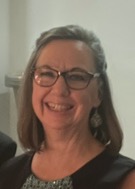
Janet Knust, M.S., LSLS Cert.AVEd., TOD/HH, ECSE
Norfolk Public Schools
Janet Knust is a teacher with over 30 years of experience in the field of deaf education. She has taught in total communication classes, provided itinerant services, worked as an interpreter, and taught level 1 ASL in high schools. Since 2003, she has specialized in teaching spoken language skills (LSL) to preschoolers with hearing loss. She is currently a TOD/HH with Norfolk Public Schools, a certified Listening & Spoken Language Specialist (LSLS Cert.AVEd.), a member of VNOC, and serves on the VA-SELLR-DHH advisory committee.
Presentation Description
The session will focus on the foundations of creating experience stories with your students. Through video examples and PowerPoint, the session will provide opportunities for the participants to begin planning for experience stories with their students. The session will also allow the audience to make their own experience stories.
Participant Outcomes and Objectives:
- Identify experience stories as a type of tool used to support literacy development for children who are Deaf/hard of hearing with additional disabilities, including deafblindness.
- Recognize methods to develop instructional lessons for their students using experience stories.
- Begin to plan potential topics/subjects for experience stories that they may want to create with their students.
Presenter Biography
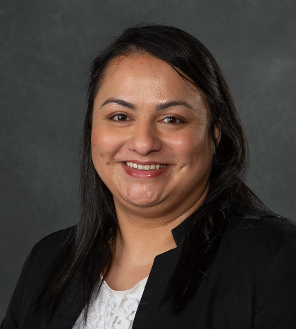
Dr. Ira Padhye
Project Director
The Virginia Deafblind Project
Dr. Ira Padhye is the Director of the Center for Sensory Disabilities and the Project Director at the Virginia Deafblind Project at the Partnership for People with Disabilities at Virginia Commonwealth University in Richmond, VA. In 2023, she received her doctorate in Special Education from Virginia Commonwealth University. Prior to her position at the Deafblind Project, she was a Teacher of the Deafblind in the Deafblind Program at the Perkins School for the Blind in Watertown, MA. She has her Master’s in Education in Severe Special Needs, with a concentration in Deafblindness from Boston College. Ira's research interests include professional development for special education teachers and classroom paraprofessionals working with students with low-incidence disabilities.
Roundtable Discussion
4:25 - 5:00 p.m.
Please join us to learn more about perspectives from various professionals and families who work with children who are deaf, hard of hearing, or deaf +.